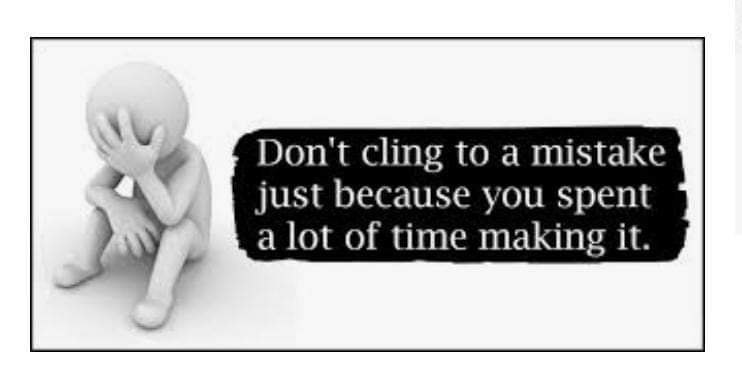19th May, 2023
Even though it’s tempting to carry on with something that cost you so much in the first place, you should abandon it as soon as you realize that continuing with it will cost you more time and money than the alternatives.
But this rarely happens due to what is known as the ‘Concorde effect’ or the ‘sunk cost bias.’
The Concorde is a prime example of a government deficit project. Even
though both parties, Britain and France, had long realized that the
supersonic aircraft business would never work, they continued to invest
enormous sums of money in it—if only to save face. Abandoning the project would have been tantamount to admitting defeat. The ‘Concorde effect’ leads to
costly, even disastrous, errors of judgment.
The Americans extended their involvement in the Vietnam War because of this. Their thinking: “We’ve
already sacrificed so much for this war; it’d be a mistake to give up now.”
When the financial viability of an enterprise is questionable going forward, any decision to continue should not be based on what has already been spent. The Concorde partners learned this lesson 27 years, and lots of taxpayer money, too late.
The ‘Concorde Effect’ is most dangerous when we have invested a lot of time, money, energy, or love in something. This investment becomes a reason to carry on, even if we are dealing with a lost cause.
The more we invest, the greater the sunk costs are, and the greater the urge to continue becomes.
Our Investors frequently fall victim to the sunk cost fallacy. Often they base
their investment decisions on acquisition prices. “I lost so much money with
this stock, I can’t sell it now,” they say. This is irrational. The acquisition price should play no role. What counts is the stock’s future performance
(and the future performance of alternative investments).
Ironically, the more money a share loses, the more investors tend to stick by it or to average the purchase price by buying lower.
Perhaps the hardest decision a business owner ever faces is when to end a business pursuit, whether a new product, acquisition or – and this is the mother of all anguishing decisions – to close the business.
The reason for the anguish is because for every entrepreneur who succumbs to the Concorde Fallacy and stays too long at the dance, there is one who pushed on, one more day, and found success.
Rational decision making requires you to forget about the costs incurred to date. No matter how much you have already invested, only your assessment of the future costs and benefits counts.
Don’t “throw good money after bad” and stay blessed forever.

